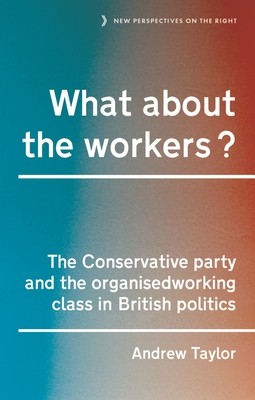
- We will send in 10–14 business days.
- Author: Andrew Taylor
- Publisher: Manchester University Press
- ISBN-10: 1526103605
- ISBN-13: 9781526103604
- Format: 15.6 x 23.4 x 1.8 cm, kieti viršeliai
- Language: English
- SAVE -10% with code: EXTRA
Reviews
Description
The relationship between the Conservative Party and the organised working class is fundamental to the making of modern British politics. Industrialisation and urbanisation saw the emergence of democracy and class politics, symbolised, by the development of trade unions, which assumed growing political significance. The organised working class, though always a minority, was perceived by Conservatives as a challenge; condemned as threatening property, and as harbingers of socialism. Many trade union members dismissed the Conservatives as the bosses' party, ever-ready to restrict the unions' freedom in the interests of profit. However, at the book's core is a puzzle: why, throughout its history, was the Conservative Party seemingly accommodating towards the organised working class that it ideology, social composition, and the preferences of most Conservatives would seem to permit? And why, in the space of a relatively few years in the 1970s and 1980s, did it abandon this heritage? Taylor argues that throughout its history, the Conservative Party has faced a broad strategic choice with respect to the organised working class: either inclusion or exclusion. The portrayal of the character on the front cover encapsulates the concept of the 'bloody-minded' British worker - an attitude that encapsulates a determinedly 'conservative' attitude to defending rights and influence gained during the twentieth century and which led to the reaction against 'union power' in the 1960s and 70s.
EXTRA 10 % discount with code: EXTRA
The promotion ends in 22d.23:08:59
The discount code is valid when purchasing from 10 €. Discounts do not stack.
- Author: Andrew Taylor
- Publisher: Manchester University Press
- ISBN-10: 1526103605
- ISBN-13: 9781526103604
- Format: 15.6 x 23.4 x 1.8 cm, kieti viršeliai
- Language: English English
The relationship between the Conservative Party and the organised working class is fundamental to the making of modern British politics. Industrialisation and urbanisation saw the emergence of democracy and class politics, symbolised, by the development of trade unions, which assumed growing political significance. The organised working class, though always a minority, was perceived by Conservatives as a challenge; condemned as threatening property, and as harbingers of socialism. Many trade union members dismissed the Conservatives as the bosses' party, ever-ready to restrict the unions' freedom in the interests of profit. However, at the book's core is a puzzle: why, throughout its history, was the Conservative Party seemingly accommodating towards the organised working class that it ideology, social composition, and the preferences of most Conservatives would seem to permit? And why, in the space of a relatively few years in the 1970s and 1980s, did it abandon this heritage? Taylor argues that throughout its history, the Conservative Party has faced a broad strategic choice with respect to the organised working class: either inclusion or exclusion. The portrayal of the character on the front cover encapsulates the concept of the 'bloody-minded' British worker - an attitude that encapsulates a determinedly 'conservative' attitude to defending rights and influence gained during the twentieth century and which led to the reaction against 'union power' in the 1960s and 70s.


Reviews